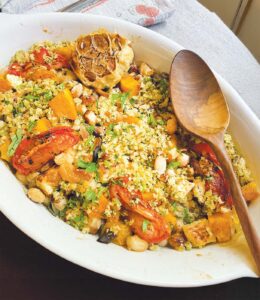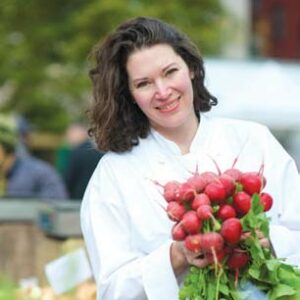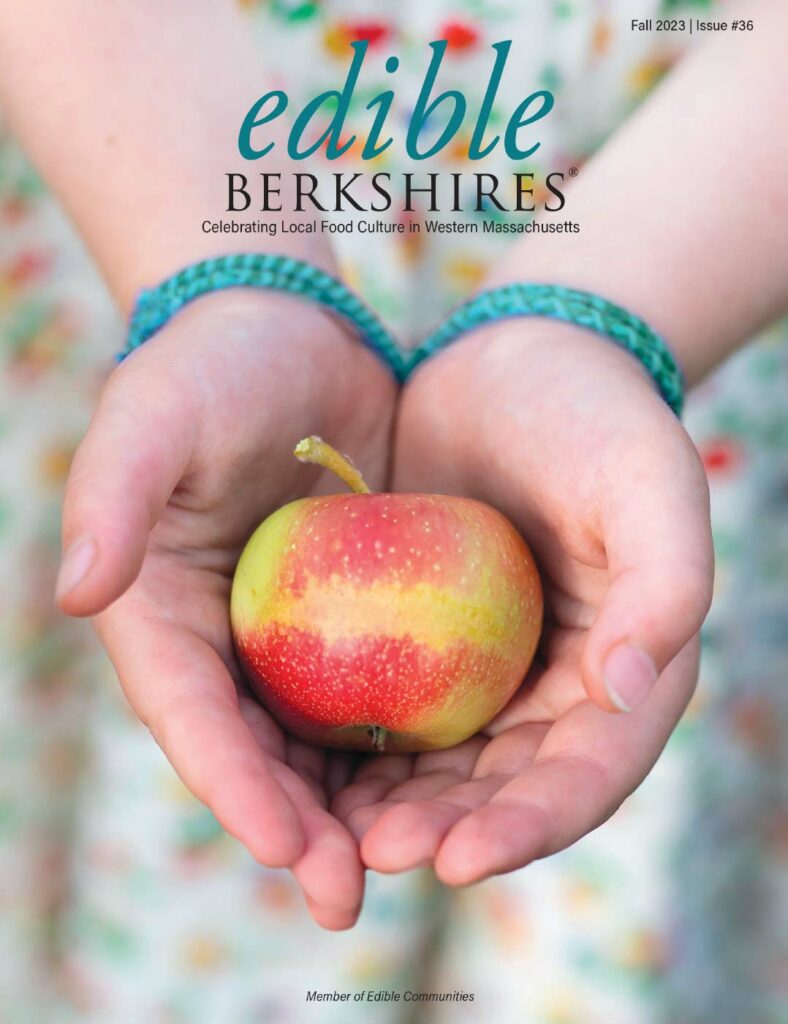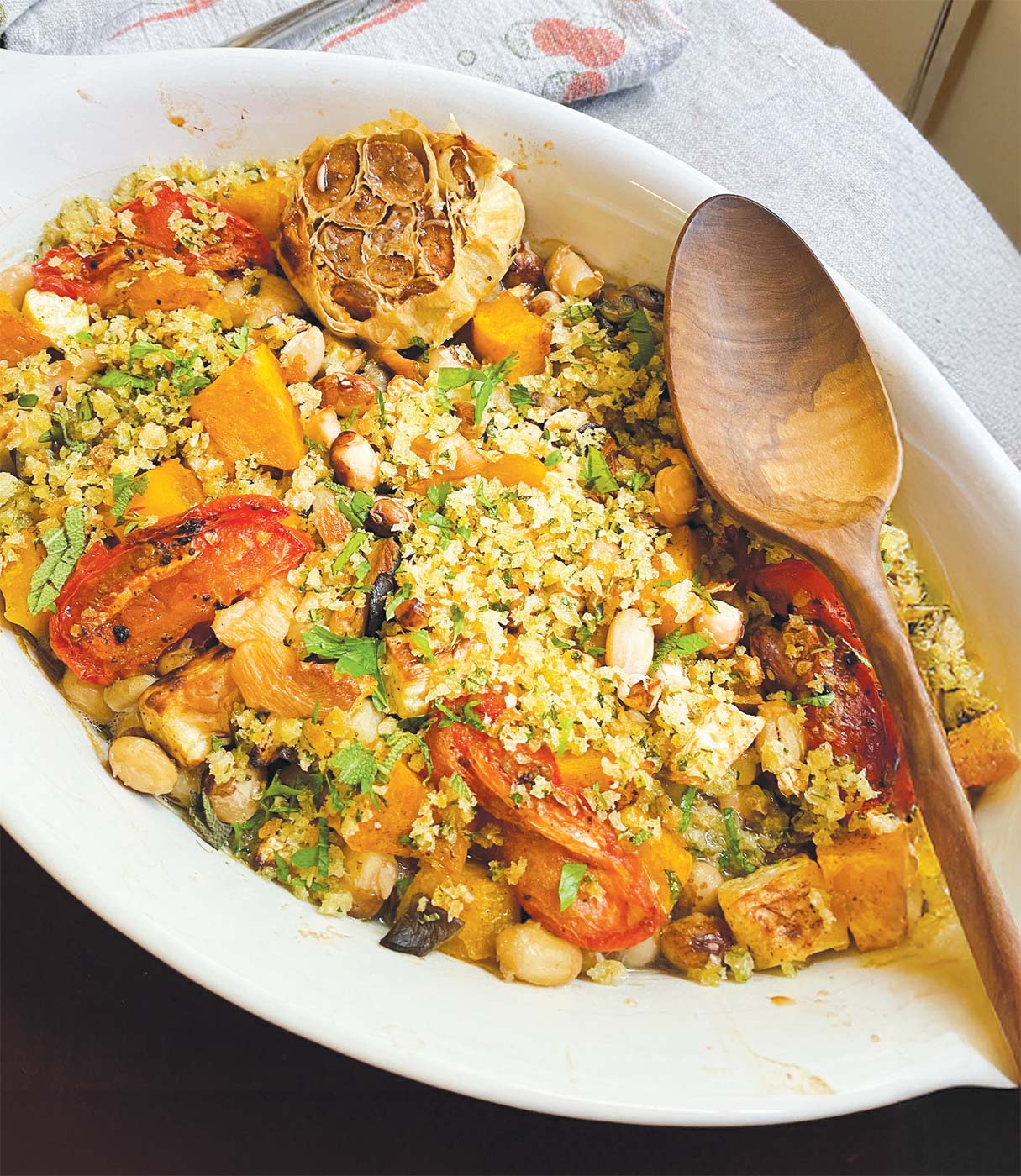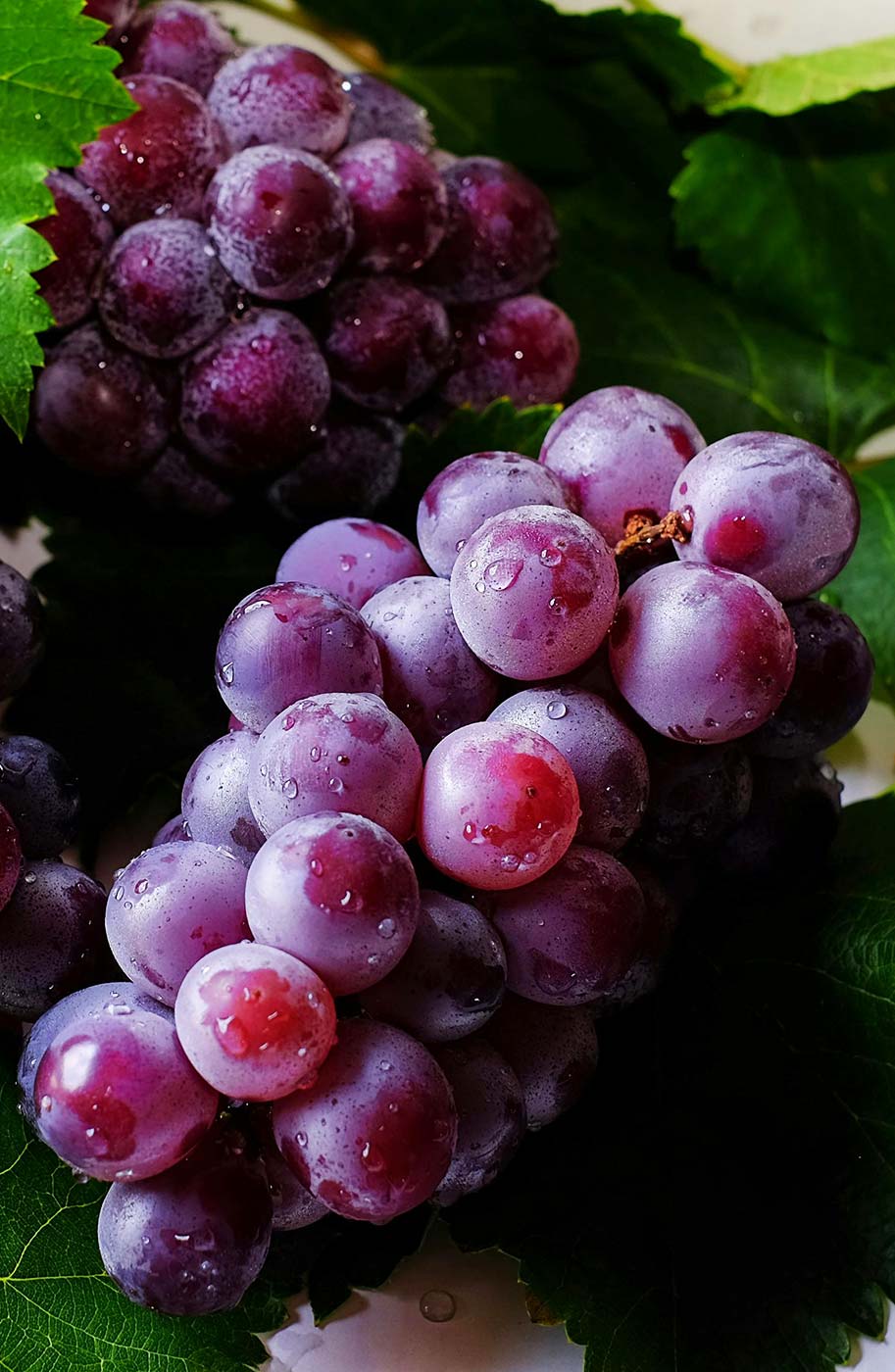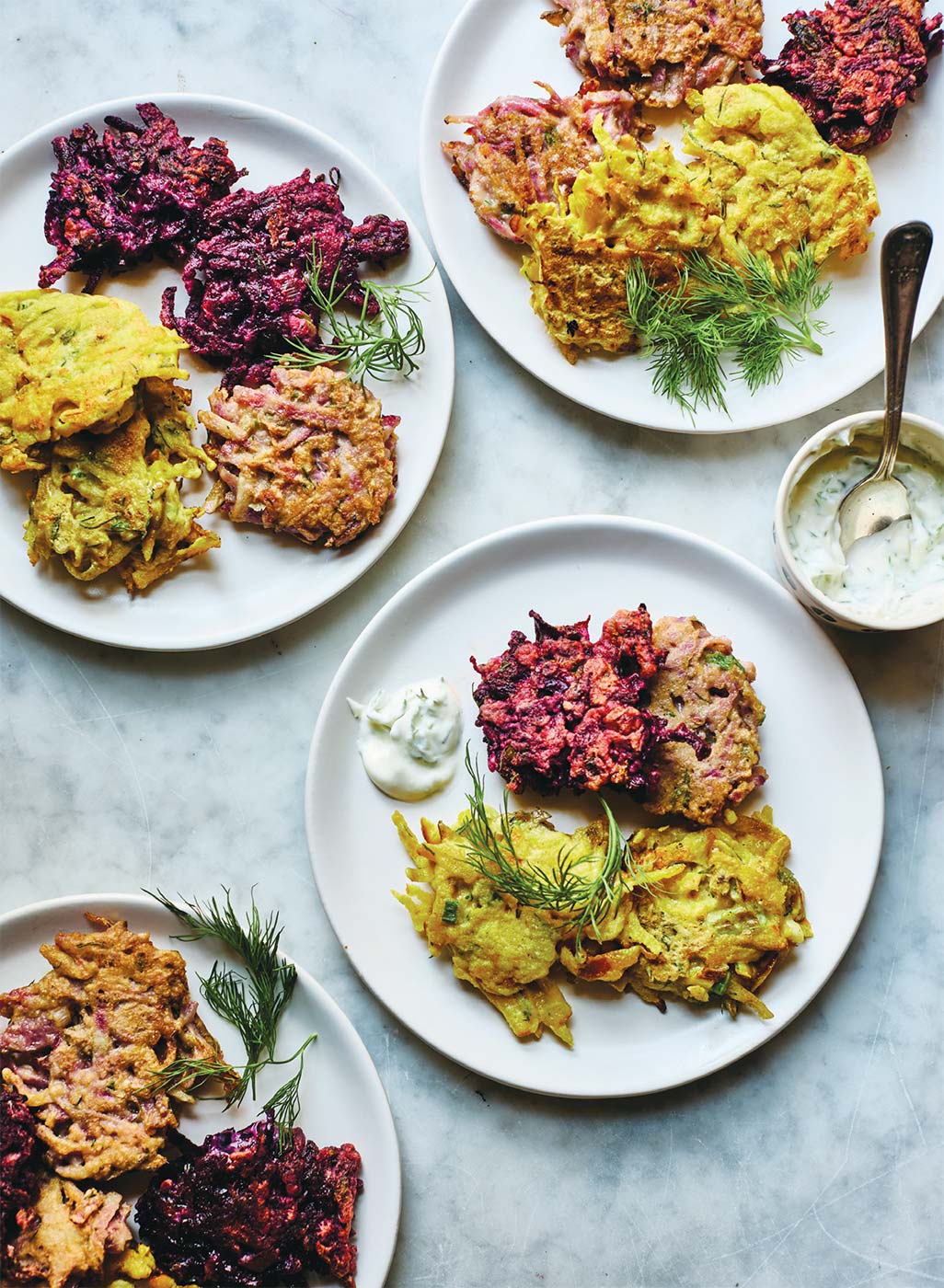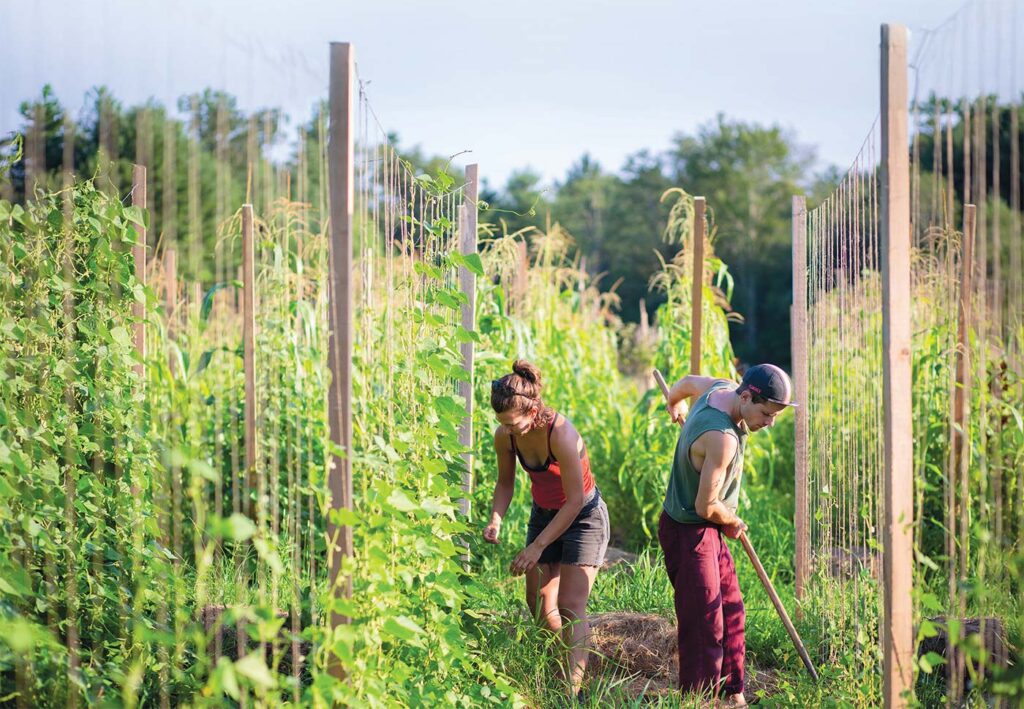
A conversation with Ben Webb and Brittany Ebeling of Little Bean Farm and Pantry
PHOTOGRAPHS BY HANNAH SHERMAN
This couple’s passion for community and food resiliency fuels their people-powered, no-till veganic protein enterprise. We gathered on the lovely Webb family farm in Sheffield, where a low, rounded slope of the ancient Taconic Range defines one side of the valley and the Housatonic River the other. Brittany and Ben offer me tea and freshly picked blueberries under a shady tree where we settle in for our conversation.
KS: What makes your beans unique? Why invest the amount of time and energy you both do into growing, harvesting, and selling your own beans?
Brittany: This is the project of our lives. This is the natural extension of living our values—we’re very idealistic but trying to demonstrate that growing your own protein is possible. Ben and I also have other full-time jobs, so we started on a quarter acre but are now up to growing on three-quarters of an acre. Our goal is to harvest 1,000 pounds of beans per acre without using fossil fuels and without draining an aquifer. We also believe that taking action is an antidote to climate despair.
Ben: “Farm to table” is a limiting idea. This is more about who the laborers are. This project is not for financial gain, but we see the value in a meaningful land project. A unique feature of our farm is that we’re growing only pole beans, not bush beans. Pole beans grow tall—30 feet or more if you let them. You can’t usually buy pole beans commercially because they require hand-harvesting, which is not compatible with industrial farming. And our practices are vegan—no animal products are involved in any part of our process (this means no manure or bonemeal or fish emulsion as soil amendments).
A pole bean has more flavor and better texture than bush beans, and we eat them breakfast, lunch, and dinner! We slow cook them (whichever variety) with garlic, bay leaf, and salt—that’s it. Also, because we sell them out quickly and they don’t sit on shelves getting drier and drier, our beans will hydrate faster and cook faster than commercially dried beans.
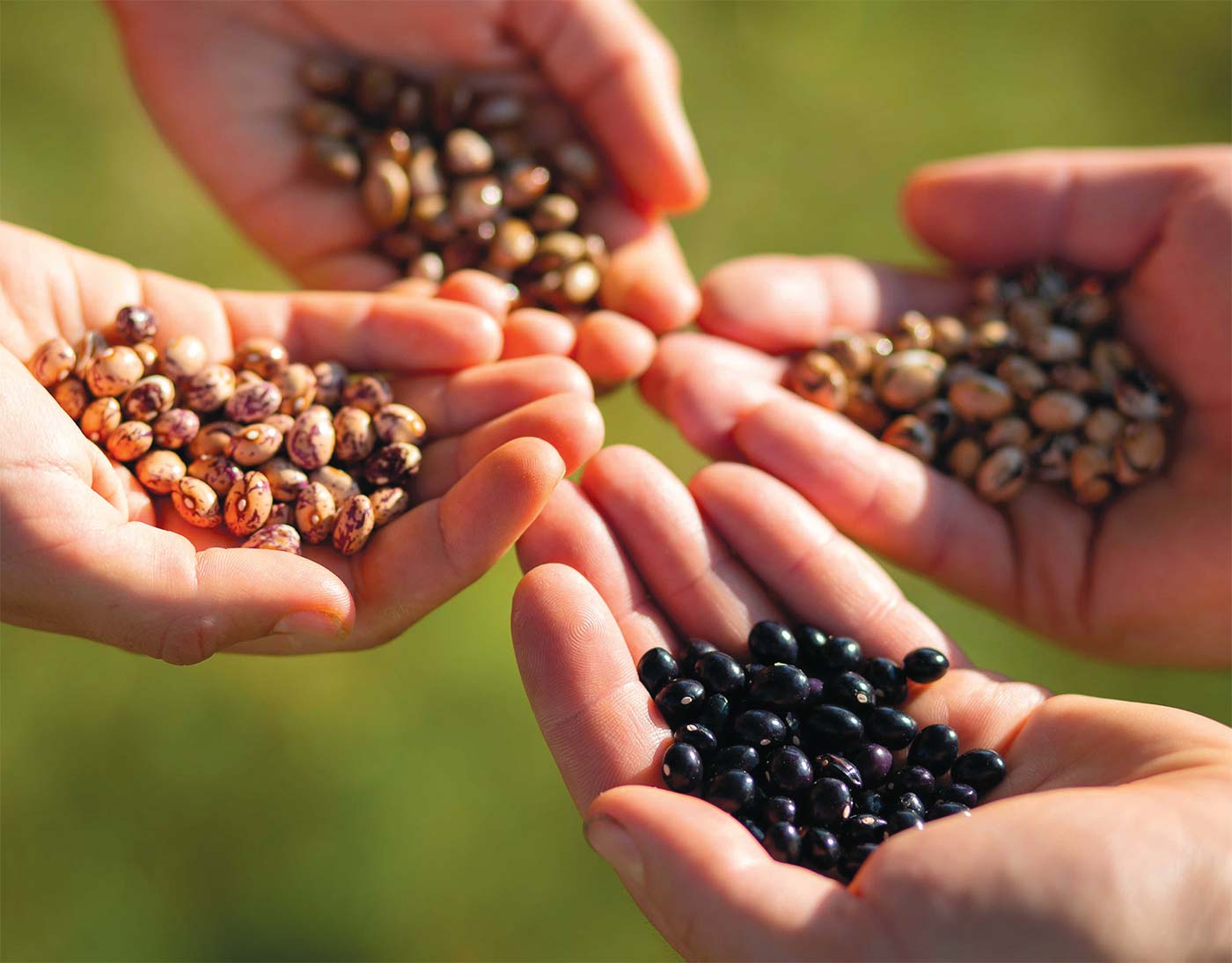
KS: What is the terroir of your farm? Are there optimal conditions for growing beans in the Berkshires that other regions might not have?
Ben: Sheffield is Housatonic River bottom clay or sand. Our soil is high in minerals and moisture. Brittany: Beans are really adaptable to a huge variety of growing conditions, and we encourage people to plant our beans themselves to help encourage food resiliency in our community.
KS: How do you decide which beans to keep growing as part of your product line?
Brittany: We are growing close to 30 heirloom varieties, and we base the planting decision on suitability to our climate zone and if the beans will thrive here. We avoid all fossil fuels in our growing practice and have all bicycle-powered equipment like our bean thresher. So the beans need to be suitable to that technology. And lastly, the beans need to taste good and help preserve genetic diversity.
Ben: The main reason you see only about seven varieties of beans in your grocery store is the need for mechanical sorting, which is based on the coloring of the beans. The aesthetics of heirloom beans means you get diverse mottling and coloring from bean to bean, and the sorting equipment hates that! So, we hand sort our beans—the human eye is the last arbiter of quality.
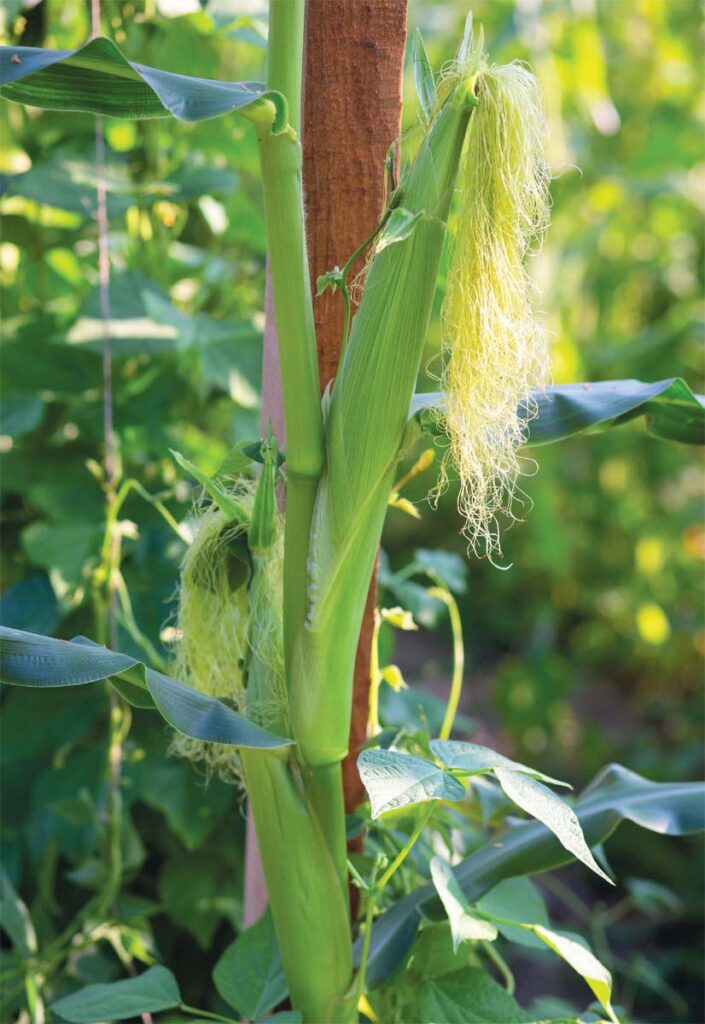
KS: How do you market your beans and where can people buy them?
Ben: At this point we are only selling direct to consumers. To hear about our bean bundle availability and market attendance, you can sign up for our mailing list on our website: littlebeanfarmandpantry.com.
Brittany: We don’t use social media to spread the word. Instead, we hold in-person celebrations of what is coming from the earth.
KS: Tell us a little bit about Bean Fest, your annual festival in October on the farm.
Brittany: Bean Fest is our harvest festival where we share what we’ve been doing this growing season with our community. We get together to celebrate our work to preserve beans that are culturally important to this area. We love hearing family lore from our customers—the level of their passion is unmatched. We have bean tastings, garlic planting, bean-threshing demos, arts and crafts, and folk music. The first year we held Bean Fest we had between 50 and 100 attendees. Last year we had 200 people show up. Hopefully this year will be even bigger. We’ve noticed that people want to be for something vs. anti everything, and this is an opportunity to be for something that is clearly ecologically good.
